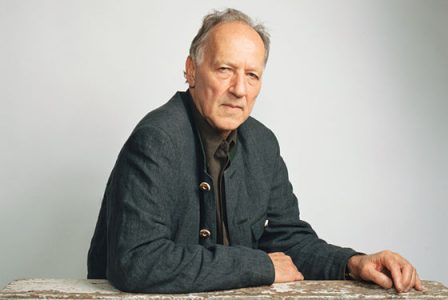
Werner Herzog
Werner Herzog Stipetić is a famous German film maker, commonly known as Werner Herzog, the name he choose to use in the early beginning of his career, since he considered it more striking and memorable than his real last name.
Born in 1942 in Munich, Germany, Werner has Croatian origins, and spend a big part of his childhood in a small town called Sachrang, in Bavaria, where his family had to take shelter due to the II World War. The first years of his life were very tough, since the family had very poor resources and living conditions, and his father abandoned him and his mother when he was an infant. Throughout his adolescence, Werner Herzog’s life remained troubled and unstable; at 12 years old, he returned to Munich with his mother, were he finished his studies. Herzog never revealed any special artistic skills, but since his first contact with cinema back in Sachrang, were he met a travelling movie projectionist, he decided that he wanted to make movies, and was determined to pursue his goal.
When he turned 18 years old, Werner Herzog started to explore his interest for cinema more deeply, and became a self-taught movie student, learning the basis of the art through an encyclopedia, and making his first records with a 35 mm camera that he stole from the Munich Film School. Shortly after, Herzog graduated from high school, and was offered a scholarship to Duquesne University in Pittsburgh, Pennsylvania, USA; however, he decided to decline the offer and started to work as a welder in a factory, in order to save some money to finance his movie projects. In 1962, with 20 years, Herzog directed his first short film, entitled “Herakles”.
In the following years, he continued writing, producing and directing several films, both fictional and documental; Herzog was one of the pioneers and a prominent director of the New German Cinema, an artistic movement to which are also connected Wim Wenders, Rainer Werner Fassbinder or Margarethe von Trotta, and that was greatly inspired by the French Novelle Vague. The movies from this movement were normally produced with a very low budget, and were characterized by its experimentalism and innovation, both in terms of techniques and narratives, in an effort to be distinct from classical cinema as much as possible.
In 1972, with the release of “Aguirre, der Zorn Gottes” (“Aguirre, the Wrath of God”), the director reaches for the first time the international success and recognition he ambitioned for several years; this was followed by many other movies, that reinforced his reputation, and made him one of the most influent German film makers.
Herzog’s work is mainly characterized by the strong dream-like and dramatic components, as well as the usual conflicts between characters. From his vast filmography, that includes fictional and documental movies, the most well-known movies, and that had a bigger impact and success must be “Nosferatu, Phantom der Nacht” (“Nosferatu, the Vampyre”) from 1979, “Fitzcarraldo”, released in 1982, “Mein Liebster Feind” (“My Best Fiend”), from 1999 or “Encounters at the End of the World”, which granted him his first and only Oscar nomination for Best Documentary, in 2009.
Throughout his career, Werner Herzog was nominated for various awards, including Primetime Emmy Awards, BAFTA Awards, Bavarian Film Awards, and had his work featured in important movie festivals, like Cannes Film Festival, Berlin International Film Festival or Locarno International Film Festival, among many others.




